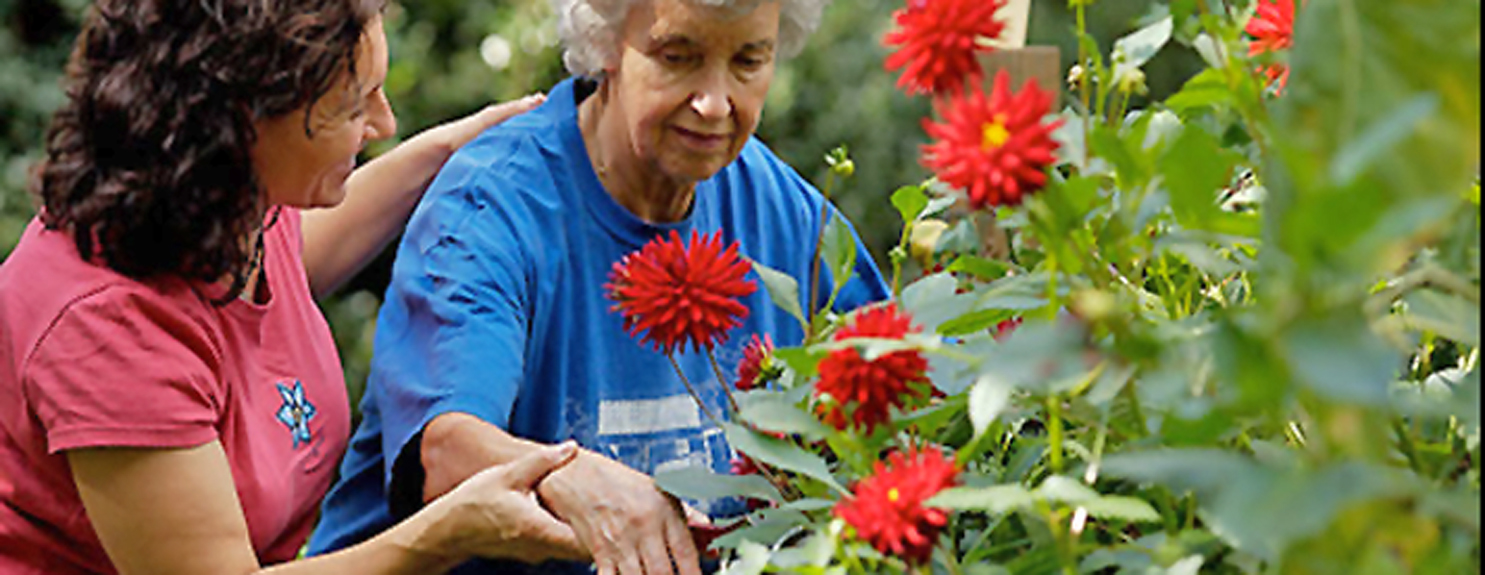What Do Horticultural Therapists Do?
Horticultural therapy (HT) integrates therapy with gardening for the purpose of physical and mental rehabilitation. Horticultural therapists work with a wide variety of patient diagnoses, such as physical or emotional trauma, and people with mental illness, and with many different populations, from children to teenagers and adults to the elderly. Horticultural therapists evaluate the physical and mental disabilities of patients and tailor programs to promote physical therapy, education, rehabilitation, and relaxation. Professional horticultural therapists also work closely with doctors, psychologists, psychiatrists, and occupational therapists in designing individual care plans.
HT is a beneficial and effective therapeutic modality, used within a broad range of rehabilitative, vocational, and community settings. Horticultural therapists assist participants to learn new skills or regain those that have been lost. HT helps improve memory, cognitive abilities, task initiation, language skills, and socialization. In physical rehabilitation, a horticultural therapist can help a participant strengthen muscles and improve coordination, balance, and endurance. In vocational settings, horticultural therapists can help people learn to work independently, problem solve, and follow directions.
Where Do Horticultural Therapists Work?
Horticultural therapists work in gardens; vocational, occupational, and rehabilitation programs; hospitals; clinics and skilled nursing facilities; hospice and palliative care programs; correctional facilities; public and private schools; and assisted living and senior centers.
How Much Do Horticultural Therapists Earn?
The Bureau of Labor Statistics does not publish employment and earnings data for horticulture therapists. According to salary.com, the median salary for horticulture therapists in the United States is approximately $70,949, slightly lower than the median salary of $75,709 in New York State. In NYS, horticulture therapists in the 25th percentile make approximately $67,663 while those in the 75th percentile make approximately $84,073.
Supply and Demand
There are no projections available at the national level or for New York for horticultural therapists.
New York Educational Requirements
Horticultural therapists typically hold a bachelors degree in horticulture or related field to enter into horticultural therapy. Most educational programs in the Northeast are certificate programs. The curriculum for horticultural therapists often includes courses in health and abnormal psychology, plant pathology, and crop management, as well as social and behavioral sciences.
New York Licensure Requirements
New York does not require horticultural therapists to be licensed or certified. The American Horticultural Therapy Association (AHTA) does register horticultural therapists on a voluntary basis. To become registered by the AHTA, an individual must have a bachelor’s degree in horticultural therapy; or a bachelor’s degree in another field plus required coursework in human science field, horticulture field, and horticultural therapy as outlined by the AHTA; and 480 hours of supervised internship. For specific information on registration requirements, go the www.ahta.org.
Education Programs in the Northeast U.S. (subject to change)
| Rutgers University School of Environmental & Biological Sciences 59 Dudley Road New Brunswick, NJ 08901-8520 (201) 336-6780 |
New York Botanical Garden Adult Education Department The New York Botanical Garden 2900 Southern Blvd. Bronx, NY 10458-5126 (800) 322-NYBG (6924) |
| Delaware Valley College Dept. of Natural Resources & Biosystems Management 700 E. Butler Ave. Doylestown, PA 18901 (215) 489-2933 |
Temple University Dept. of Landscape Architecture and Horticulture 580 Meetinghouse Road Ambler, PA 19002 (267) 468-8181 |
Additional Web Links
For more information on Horticultural Therapy, go to:
American Horticultural Therapy Association: www.ahta.org
Horticultural Therapy Institute: http://www.htinstitute.org.
[whohit]Horticultural Therapists[/whohit]

